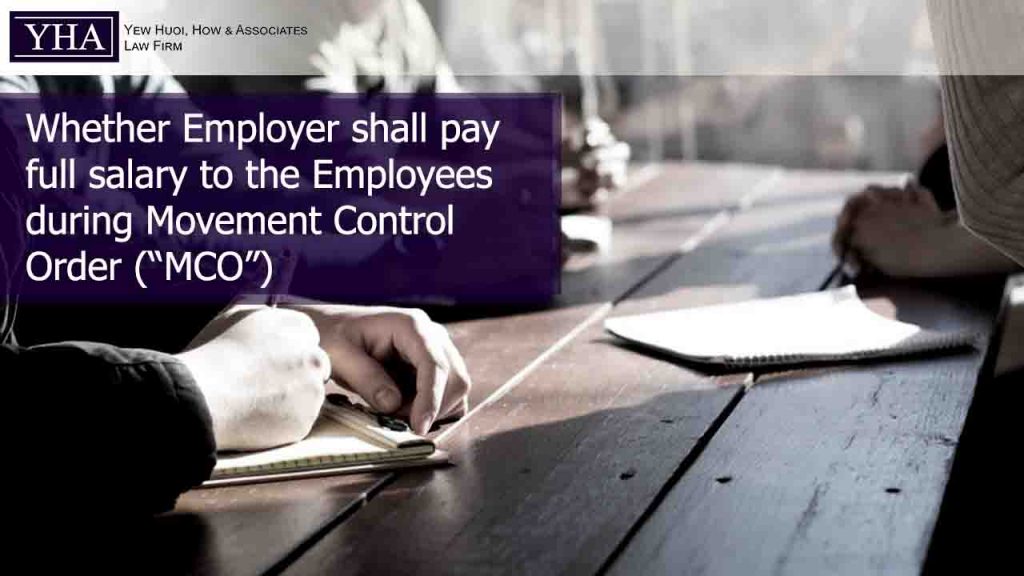Whether Employer shall pay full salary to the Employees during Movement Control Order (“MCO”)?
- It depends.
- Throughout the MCO period, the Employer shall pay full salary to the Employees if the Employer can sustain its financial situation.
- However, if there is a business downturn due to unprecedented events such as Covid 19 pandemic and MCO imposed by our Government, the Employer may seek for consent from the Employees to opt for pay cut during the MCO period.
Does pay cut lead to constructive dismissal?
(i) No
- If the Employer has obtained consent from the Employee; and/or
- If the Employment Contract provides for pay cut.
(ii) Yes
- If the Employer does not obtain consent from the Employee and has unilaterally imposed pay cut on the Employee; and/or
- If pay cut is not provided under the Employment Contract.
Note:
The courts have previously held that unilateral reduction of salary when the Employment Contract does not say so and without consent of the employee is a fundamental breach and tantamount to repudiation of contract of employment.
(Murugesan a/l Subramaniam v Professional Services Sdn. Bhd [2015] 2 LNS 0466 and Dr. Rayanold Pereira v Menteri Sumber Manusia & Anor [1997] 3 CLJ Supp 116)
Can Employer compel the Employee to take annual leave/unpaid leave?
- Generally, the Employer shall continue to pay the salary to the Employee.
- However, if the Employer suffered from financial situation and can justify it, the Employer can ask the Employee to take annual leave/unpaid leave, provided consent has been obtained.
- Failing which, it may lead to constructive dismissal as it is a fundamental breach of contract.
- The Employer must always act in good faith and be transparent to the Employee.

